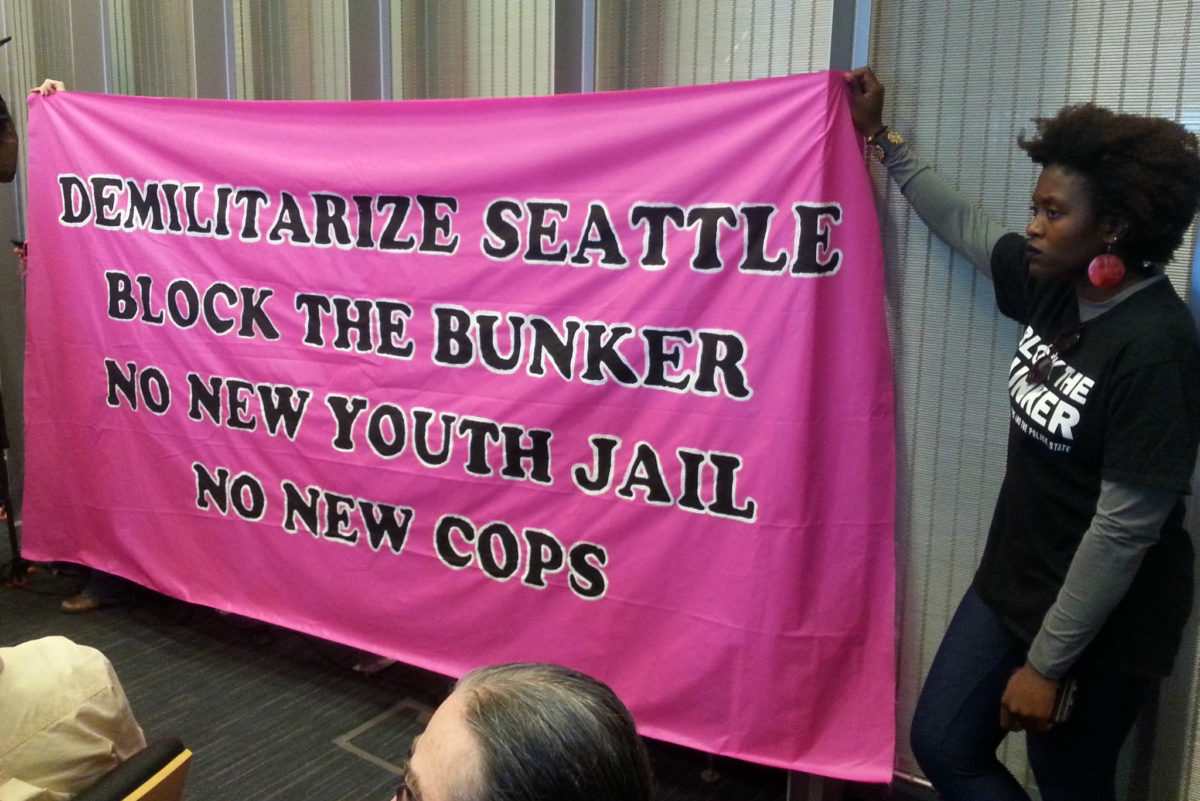You’ve heard it before: Radical protesters can whinge and scream in the streets about oppression all they want, and tweet all the Shaun King stories they want, but real change comes from working within the system, not trying to tear it down from without.
Five years ago, this was the go-to argument against Occupy Wall Street: that they were a bunch of silly, impractical kids throwing hashtags and an extended fit at everyone else’s expense. And it has dogged the Black Lives Matter movements from its inception, with critics quick to snipe that the group may be good at organizing protests, but little else.
Events last week should put those critiques to rest.
When the mayor and City Council late last Thursday announced that they were putting the brakes on a new police precinct in North Seattle, they silenced any doubt that the new black-activist movement in this city was a political force to be reckoned with.
While in recent weeks many were quick to jump on the anti-precinct bandwagon—with its $160 million price tag, there was something in the project for everyone to hate—the the #BlockTheBunker movement that grew out of Black Lives Matter to oppose the project deserves primary credit for raising the alarm and effectively halting a project years in the making.
If that’s not delivering concrete change in the way this city works, we don’t know what is.
And this was no small feat. At the beginning, those activists looked quixotic. Big capital projects tend to have the momentum of a bowling ball, barreling through grassroots opposition as though scattering plastic pins. Now the city’s autopilot approval of the North Precinct project is more like a conveyor belt whose gears have been temporarily jammed by a determined group of activists.
And they’re not finished. On Monday, #BlockTheBunker activists shut down a full Council meeting, listing further demands to the city. Not too long ago, such direct action could have been seen as a fit of flashy activism that would soon dissipate as the gears of the system ground on. It would be foolish now to dismiss it as such. Responding to a letter by Mayor Ed Murray stating his continued commitment to replacing the North Precinct in some form or fashion, the activists demanded no new precinct, period. Also, no new county youth jail. And no new 200 Seattle cops, as Murray has promised to hire. Instead of spending hundreds of millions of dollars on new police and prisons, the activists want local leaders to fund affordable housing and social services.
Reasonable people can disagree on whether Seattle should go that far in the direction of social democracy. What’s not up for debate is whether such radical social change is a real option. It is—just as same-sex marriage, marijuana legalization, or a $15 minimum wage were realistic options that took a lot of work to effect. These Black Lives activists have reminded all of us that our social reality is mutable and therefore our shared responsibility; that soldiers and cages are not the only way to address public safety.
During October and November, the City Council will haggle over amendments to the mayor’s proposed annual city budget. The whole process is as boring as it sounds, but this unsexy two-month accounting exercise is the single biggest fulcrum from which to leverage systemic change.
You can be certain that Black Lives activists will be present, that their concerns—germinated from decades of living on the margins of society—will be heard one way or another. They still aren’t working within the system. But they are no doubt changing it.
editorial@seattleweekly.com






